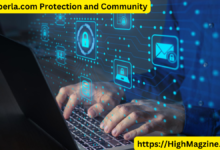The internet has opened up numerous avenues for people to share their thoughts, opinions, and content with a vast global audience. One of the most intriguing trends in recent years is the emergence of platforms and communities that allow users to post content anonymously. These platforms, often referred to as “anonposted” environments, have sparked a fascinating shift in the way people communicate online. Anonposted refers to the practice of posting content online without revealing one’s identity, which can serve various purposes ranging from privacy protection to the desire for free expression.
The idea of sharing content without attaching a name, face, or identity to it isn’t a new one. In fact, anonymous communication has existed for centuries, but the digital age has expanded the scope and impact of anonymity on a global scale. In many ways, anonposted content has become a form of liberation, allowing individuals to express their true selves without fear of judgment, harassment, or repercussion.
The Popularity of Anonymous Platforms
One of the key factors that have fueled the popularity of anonposted content is the widespread use of social media and online forums. Websites like Reddit, 4chan, and certain parts of Twitter have long embraced anonymity, giving users the freedom to post without revealing personal information. These platforms have cultivated spaces where users can participate in discussions, share memes, ask questions, and even criticize societal issues without worrying about their identities being exposed.
Anonymity offers a unique form of liberation to users who may otherwise feel constrained by societal norms or the potential consequences of sharing their views publicly. For instance, individuals from authoritarian regimes or oppressive societies may use anonymous platforms to express dissent or voice opinions that could otherwise result in punishment. In this sense, anonposted content can serve as a tool for social change, enabling people to speak out and organize movements without the threat of censorship or retaliation.
At the same time, the rise of social media influencers, bloggers, and content creators has also led to a growing awareness of the need for privacy. While many people now choose to build their personal brand by revealing their true identities, others prefer to stay anonymous in their online interactions. This is especially true in areas where online harassment or cancel culture has become rampant, with individuals fearing the consequences of sharing personal information or engaging in controversial topics.
The Appeal of Anonymity in Content Creation
The appeal of anonposted content lies in its ability to remove the barriers typically associated with online interactions. For instance, individuals may feel more comfortable expressing themselves freely when their identity is not attached to their words. This has led to an influx of creative expression, with many users choosing to publish their work without fear of being ridiculed or judged.
Moreover, anonymity has paved the way for the creation of niche communities and forums where people can bond over shared interests without the pressure of social expectations. These spaces often encourage open discussions on sensitive topics like mental health, sexuality, and politics, which people might find difficult to address in a more public, identifiable context. This ability to remain anonymous often leads to more honest and authentic conversations, where users can share personal experiences without the fear of stigma or backlash.
For creators, being able to post content without revealing their identity offers an additional layer of protection. Many individuals choose to stay anonymous when posting their work to avoid the pressure of maintaining a public persona or dealing with unwanted attention. Anonymity can also allow artists, writers, and musicians to explore creative projects without fear of being judged based on their past work or public reputation. In some cases, this anonymity can even lead to a sense of freedom that enables individuals to produce their best work.
Anonposted Content and the Role of Privacy
Privacy is a cornerstone of the anonposted experience. As concerns about data privacy continue to grow, many people are becoming increasingly conscious of how their personal information is used and shared online. Anonymity allows users to maintain control over their digital footprints, ensuring that their online activity is not linked to their real-world identity.
For many, this is an essential aspect of protecting their personal privacy. In a world where data breaches and cyber-attacks are becoming more common, the desire to remain anonymous online is understandable. Anonposted platforms allow individuals to safeguard their personal details and participate in online activities without revealing sensitive information, which in turn can reduce the risk of identity theft, stalking, or online abuse.
Moreover, the ability to maintain privacy also encourages users to engage in more genuine and less superficial interactions. When individuals are not worried about the perception of their identity, they may feel more inclined to participate in conversations that they might otherwise avoid, such as debates over controversial topics or vulnerable personal issues.
The Dark Side of Anonposted Content
Despite the many benefits of anonymous content creation and sharing, anonposted environments are not without their challenges. While anonymity can serve as a shield against harassment and discrimination, it can also facilitate harmful behaviors such as cyberbullying, trolling, and the spread of misinformation. Because individuals feel shielded by the lack of accountability that anonymity provides, they may be more likely to engage in aggressive or harmful actions toward others.
The rise of hate speech, doxxing, and other malicious activities on anonymous platforms has raised significant concerns. Many platforms have struggled to balance the freedom of anonymous expression with the need to protect users from harm. In some cases, the lack of clear identification can lead to toxic environments, where individuals are emboldened to post inflammatory or abusive content without fear of consequences.
Additionally, the ability to remain anonymous can sometimes result in the spread of false or misleading information. Without the responsibility of having their identity tied to their statements, individuals may feel less compelled to fact-check or verify the information they share. This has led to the proliferation of rumors, fake news, and conspiracy theories in online spaces, particularly on platforms that prioritize anonymity over accountability.
The Future of Anonposted Content
The future of anonposted content remains uncertain, as the balance between privacy and accountability continues to evolve. On one hand, the desire for anonymity is unlikely to diminish, especially as concerns about online privacy and data security grow. However, the growing prevalence of harmful behaviors associated with anonymous platforms may prompt regulatory action and changes in how these spaces are managed.
In response to the challenges posed by anonymous platforms, some sites have begun to implement stricter moderation policies, aimed at curbing the negative effects of anonymous interaction. These policies include tools for reporting harmful content, increased transparency, and the introduction of identity verification processes for certain actions. Whether these measures can successfully strike a balance between maintaining anonymity and ensuring safe online spaces remains to be seen.
As society continues to grapple with the complexities of digital privacy, the concept of anonposted content will likely continue to evolve. What is clear, however, is that the need for privacy, self-expression, and unfiltered creativity in online spaces will remain an integral part of the digital landscape for years to come.
Conclusion
Anonposted content represents a unique intersection between privacy, creativity, and online communication. While there are undeniable benefits to anonymous expression, there are also challenges that come with the lack of accountability. As the digital world continues to grow and evolve, it will be crucial to find solutions that protect both the rights of individuals to remain anonymous and the integrity of the online spaces they inhabit.






